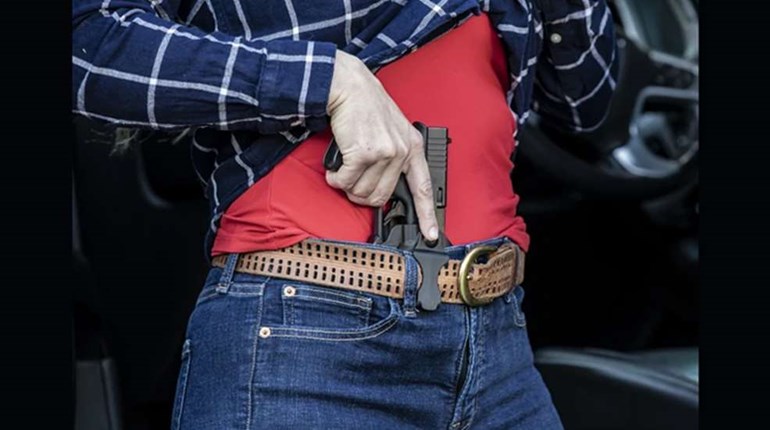
Once again, election season is upon us. No, no, not that election season. That one is still ahead of us, with all the Sturm and Drang that it will bring. Instead, it’s time for the election of 2023: The one that could get away if freedom-loving voters don’t pay close enough attention.
Given the relentless pace of our politics, and the irresistible pull of the national controversies that are generated by Washington, D.C., it can be tempting for Americans to ignore what is happening in states other than their own—especially in an off-cycle year such as 2023. But this, as ever, would a mistake.
There are a number of reasons for that. One is that, for better and for worse, the states tend to copy one other. If an ostensibly moderate place, such as Virginia, passes a set of strict gun-control measures, then gun-control advocates in other ostensibly moderate places are tempted to regard the action as a blueprint to be used elsewhere. If, however, an ostensibly moderate place, such as Virginia, rejects gun-control once again—or, for that matter, if its legislature tries to impose draconian restrictions and inspires a backlash from voters, as happened in Virginia in 2021—then gun-control advocates elsewhere are encouraged to back off. Why did constitutional carry spread slowly at first, but then become a deluge around 2015? Because, having seen that none of the predicted problems had arisen in the places where it had been adopted, the governors, legislators and voters of the states in which it had yet to pass felt confident enough to follow suit. Policy is contagious. Making sure the right policy spreads is imperative.
Another reason for voters to pay attention is that the states can serve as laboratories of experimentation in politics as well as in policy. Power is a muscle; it must be exercised if it is to remain strong. The arguments that Second Amendment advocates make this year in Kentucky, Louisiana, Mississippi, New Jersey and Virginia will be the arguments they will need next year in every state in the union. Voter networks do not sustain themselves; they need nourishment and attention. It is not enough for defenders of the right to keep and bear arms to pop up every four years and then to go into hibernation in the breaks. Defending the U.S. Bill of Rights is a permanent, rather than a temporary, vocation. In recent decades, we’ve made enormous progress in restoring the Second Amendment, but, alas, it has not removed our opponents’ ambition. We have a president who wishes to ban the most commonly owned rifle in America, to prohibit standard-issue magazines and to impose background checks on all private transfers; we have three members of the U.S. Supreme Court who wish to take American jurisprudence back to the pre-Heller days; we have a governor of California who is trying to recruit 38 other states to pass a change to the Constitution that would gut the Second Amendment. There is no such thing as “someone else’s fight.”
The last reason is jurisprudential. Last year’s Bruen decision contained within it an instruction to the lower courts to cut out their games and stop treating the Second Amendment as if it is a “second class right.” But that will be easier said than done. As both a matter of inclination and practicality, the Supreme Court cannot—and will not—superintend every single violation of the right to keep and bear arms. As such, that job will fall to the lower courts, some of which will be less willing to follow the law than we might like. A bad court decision, prompted by a state in flagrant rebellion against the Constitution, may stay on the books for years before it is corrected by the Supreme Court, and, while it is there, it may be cited by other courts that have been asked to address similar questions. The best way to ensure that this does not happen is to vote out the politicians who promise to pursue laws that they know full well do not pass muster.
An Off-Year Indication of What’s to Come?
National implications aside, gun control will be on the ballot in one form or another in every single one of the states that holds elections this November. For example, in Virginia, the Democratic Party remains determined to introduce a ban on so-called “assault weapons,” to prohibit so-called “ghost guns” and to restrict open carry.
Virginia
The governor of Virginia, Glenn Youngkin (R), is on record promising that, “as your governor, I will fight for our constitutional right to keep and bear arms,” but he has never made it clear exactly what he would be willing to support and what he would be likely to oppose. At present, the Democrats control only one branch of the state’s government: the Senate. If the Democrats were able to win control of the House of Delegates, too (currently, the House contains 50 Republicans and 46 Democrats), they would be able to roll the dice and send as many gun-control bills to Youngkin’s desk as they could pass—or even, if they secured enough representatives, to override his veto. If, by contrast, the Republicans were able to keep hold the House—or, better yet, to win back the Senate as well—they would lower the risk of any new restrictions on firearms to the vanishing point.

Virginians who wonder how much all this is likely to matter ought to consider the lesson of the state’s famous “one handgun per month” rule, which was effectively abolished back in 2012, but which, after a change in the state’s leadership, was resurrected in 2020 and remains on the books to this day. For eight years, between 2012 and 2020, Virginians believed that they had gotten rid of one of the stupidest and most-intrusive gun-control measures ever passed in the United States. And then, just like that, it came back. Now, the punishment in Virginia for any non-exempt purchaser who buys two perfectly legal handguns within the same 30-day period is up to a year in jail. Why is it important to vote? That, right there, is why. Virginia’s gun-control advocates have made it clear that they are serious. Virginians ought to believe them.
Stay tuned for more coverage on the upcoming elections from America’s 1st Freedom.

































